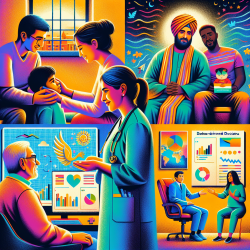The journey to becoming a physician is a long and arduous one, starting well before medical school. The premedical years are crucial in shaping the future doctors of our society. Understanding this phase can offer valuable insights for practitioners looking to enhance their skills and better support aspiring medical professionals.
The Premedical Pathway: More Than Just Academics
The premedical experience in the United States is characterized by rigorous academic requirements and competitive pressures. Students must excel in challenging courses like organic chemistry while also participating in extracurricular activities to build a strong medical school application. However, this journey is not just about academics; it encompasses informal and hidden curricula that significantly impact students' development.
A critical review of empirical research on the undergraduate premedical experience reveals two main areas of focus: attrition from the premedical track and the personality traits of premedical students. These aspects are essential for understanding how the premedical years influence future physicians.
Attrition from the Premedical Track
The high attrition rate among premedical students is a significant concern. Studies show that many students abandon their medical aspirations due to negative experiences with required coursework, particularly chemistry classes. This issue is especially prevalent among women and underrepresented minorities who face additional structural challenges.
For practitioners, understanding these barriers can help in developing strategies to support students through these challenges. Encouraging resilience and providing mentorship can be pivotal in helping students navigate the demanding premedical landscape.
The Premedical Personality: Myth vs. Reality
The stereotype of the "premed syndrome" portrays these students as overly competitive and grade-obsessed. However, recent research suggests that this perception may be more myth than reality. While premedical students are competitive, they also value a broad education and seek mastery over course content.
This nuanced understanding of premedical students' motivations can help practitioners tailor their guidance and support, fostering an environment where future physicians can thrive both academically and personally.
The Need for Updated Research
The existing body of research on the premedical experience is limited and outdated, with most studies conducted over 20 years ago. As medical education evolves, so too must our understanding of how the premedical years shape future doctors.
This gap highlights an opportunity for practitioners to engage in or support further research into this critical phase of medical education. By doing so, they can contribute to a more comprehensive understanding of the factors influencing medical student success and well-being.
Takeaways for Practitioners
- Mental Health Support: Recognize the stressors associated with premedical education and advocate for mental health resources tailored to these students.
- Diverse Pathways: Encourage diverse educational experiences that go beyond traditional science courses to include social sciences and humanities.
- Cultural Competency: Understand the unique challenges faced by underrepresented minorities and women in medicine to provide more inclusive support.
- Lifelong Learning: Stay informed about changes in medical education through conferences, webinars, and publications to better guide aspiring physicians.
The premedical years are foundational in shaping not only academic skills but also the character of future physicians. By understanding this critical phase, practitioners can play a vital role in nurturing competent and compassionate doctors who are well-prepared for the challenges of modern medicine.
The undergraduate premedical experience in the United States: a critical review










